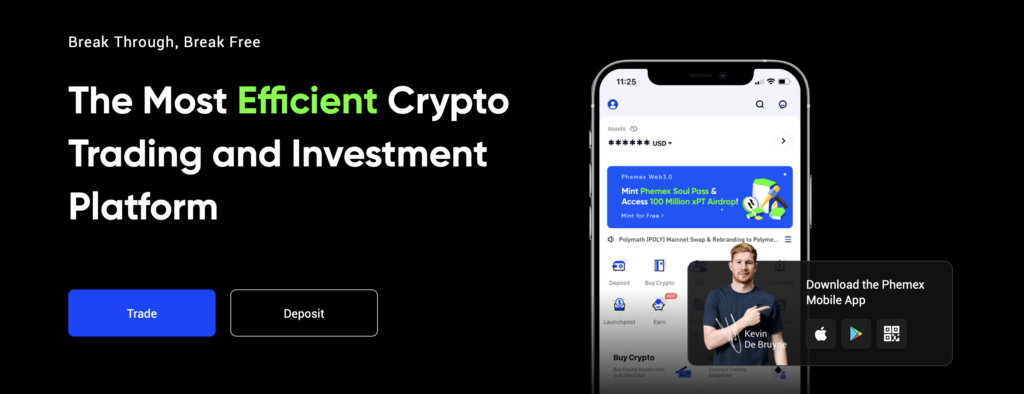Cryptocurrencies have taken the financial world by storm, and their popularity continues to grow rapidly. As the crypto market matures, new financial instruments emerge to cater to the evolving needs of investors and traders. One such instrument is cryptocurrency futures, which have gained significant traction in recent years. In this blog, we will explore what cryptocurrency futures are, how they work on exchanges, and their implications for the crypto market.
Understanding Cryptocurrency Futures
Cryptocurrency futures are financial contracts that allow traders to speculate on the future price movements of cryptocurrencies without owning the actual assets. In a futures contract, two parties agree to buy or sell a specified amount of a cryptocurrency at a predetermined price (the futures price) on a specified future date. These contracts are standardized and traded on specialized platforms known as futures exchanges.
How Do Cryptocurrency Futures Work?
To better understand how cryptocurrency futures work, let’s consider a hypothetical example:
*Trader A* believes that the price of Bitcoin, currently trading at $40,000, will increase in the next three months. *Trader B*, on the other hand, believes that the price will decrease. They both decide to enter into a Bitcoin futures contract.
Long Position (Bullish): Trader A* takes a long position, agreeing to buy one Bitcoin futures contract at $40,000, with a three-month expiry.
Short Position (Bearish): Trader B* takes a short position, agreeing to sell one Bitcoin futures contract at $40,000, with a three-month expiry.
Now, there are a few key concepts to understand:
Futures Price: The price at which the contract is agreed upon is known as the futures price. In this example, it is $40,000.
Expiration Date: The date on which the contract expires is the expiration date. In this example, it is three months from the contract initiation.
Mark-to-Market: Each day, the futures contract’s value is recalculated based on the current market price of Bitcoin. This process is called mark-to-market. If the price moves in favor of the long position (increases), *Trader B* will make a profit, and *Trader A* will incur a loss, and vice versa.
Settlement: On the expiration date, the contract is settled. Settlement can occur in two ways: physical delivery or cash settlement.
Physical Delivery: In physical delivery, the actual cryptocurrency (Bitcoin, in this case) is delivered to the buyer (long position) by the seller (short position) at the agreed-upon price. However, most cryptocurrency futures contracts are cash-settled.
Cash Settlement: In cash settlement, the contract is settled in cash based on the difference between the futures price and the actual market price of the cryptocurrency on the expiration date. If the market price is higher than the futures price, *Trader B* pays the difference to *Trader A*, and if the market price is lower, *Trader A* pays the difference to *Trader B*.
Cryptocurrency Futures on Exchanges
1. Cryptocurrency Futures Exchanges
Cryptocurrency futures are traded on specialized derivatives exchanges. These exchanges offer a wide range of futures contracts for various cryptocurrencies, allowing traders to go long or short on their positions.
Some of the popular cryptocurrency futures exchanges include:
– BitMEX (now 100x Group)
– Bybit
– Deribit
– OKEx Futures
– Huobi Futures
– Kraken Futures
Each exchange may have different trading fees, contract specifications, and trading features, so traders must choose an exchange that suits their trading needs
2. Benefits of Trading Cryptocurrency Futures
Leverage: One of the significant advantages of trading cryptocurrency futures is the ability to use leverage. Leverage allows traders to control a more substantial position with a smaller amount of capital. For example, with 10x leverage, a trader can control $10,000 worth of Bitcoin with only $1,000 of their capital.
Hedging: Cryptocurrency futures provide a valuable tool for hedging against price volatility. Traders who hold significant amounts of cryptocurrencies can use futures contracts to protect themselves from adverse price movements.
Arbitrage Opportunities: Futures trading can create arbitrage opportunities in the market, where traders can profit from price discrepancies between the futures and spot markets.
24/7 Trading: Unlike traditional stock markets that have limited trading hours, cryptocurrency futures exchanges operate 24/7, allowing traders to react to market-moving news and events at any time.
3. Risks of Trading Cryptocurrency Futures
Leverage Risks: While leverage can amplify profits, it also magnifies losses. High leverage increases the risk of significant losses if the market moves against a trader’s position.
Volatility Risks: Cryptocurrencies are known for their price volatility. Futures trading compounds this risk, as sudden price swings can lead to rapid losses.
Lack of Regulation: The cryptocurrency futures market is relatively new and less regulated compared to traditional financial markets. As a result, traders must exercise caution and conduct due diligence when selecting a futures exchange.
Conclusion
Cryptocurrency futures are powerful financial instruments that allow traders to speculate on the price movements of cryptocurrencies without owning the underlying assets. These contracts enable traders to profit from both rising and falling markets and offer various benefits such as leverage and hedging opportunities. However, trading cryptocurrency futures also carries significant risks due to high volatility and leverage.
As with any financial instrument, traders need to have a solid understanding of the market and employ risk management strategies to protect their capital. As the crypto market continues to evolve, cryptocurrency futures are likely to play an increasingly important role in shaping the landscape of digital asset trading.
FAQs
1. What are cryptocurrency futures?
Cryptocurrency futures are financial contracts allowing traders to speculate on the future price of digital assets without owning them. Two parties agree on buying or selling a specified amount of cryptocurrency at a predetermined price on a future date. These standardized contracts are traded on specialized exchanges.
2. How do cryptocurrency futures work?
Traders can take long (buy) or short (sell) positions on futures contracts. The futures price and expiration date are agreed upon. Daily mark-to-market adjustments are made based on the current market price. Settlement happens either through physical delivery or cash settlement on the expiration date.
3. What are the benefits of trading cryptocurrency futures?
Trading futures offers leverage, allowing traders to control larger positions with less capital. It also provides hedging opportunities against price volatility. Moreover, 24/7 trading enables quick reactions to market events. Arbitrage opportunities can arise between the futures and spot markets.
4. What are the risks of trading cryptocurrency futures?
High leverage can amplify profits but also increases potential losses. Cryptocurrencies’ inherent volatility compounds risk. The market is relatively new and less regulated, requiring caution and diligent research when choosing exchanges. Proper risk management strategies are crucial to protect capital in this dynamic market.

